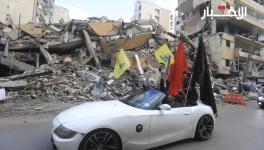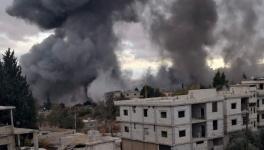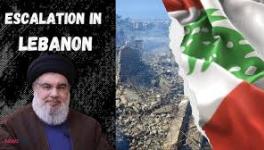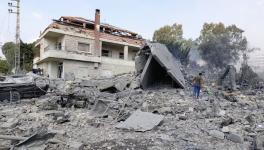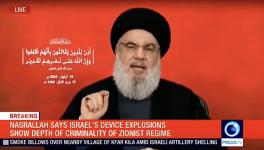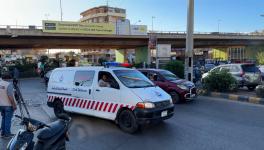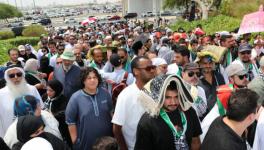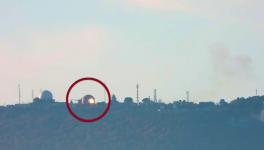Iran Responds to Israel With Missile Attack on Tel Aviv
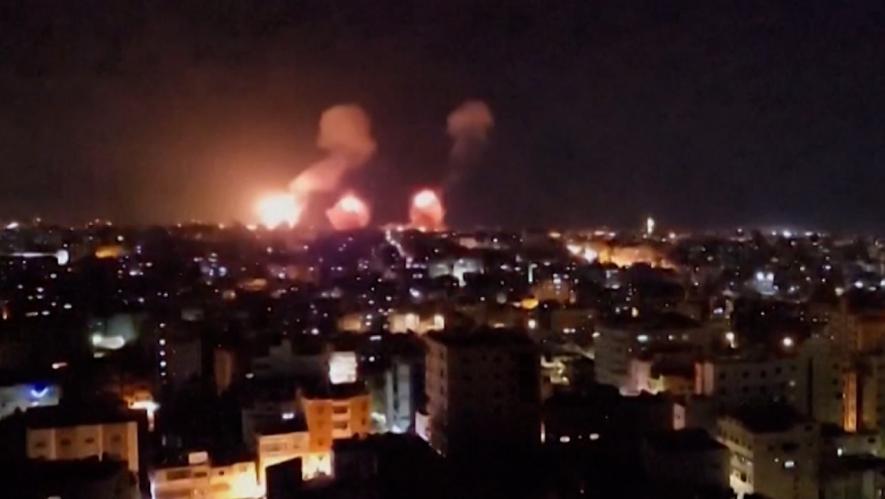
Screenshot via CNN
The city of Tel Aviv, considered a commercial hub and the largest urban center of the Israeli occupation, was rocked by multiple attacks by different fronts on Tuesday, October 1. The attacks were carried out by Hezbollah, Iran, Yemen’s Ansar Allah, and Palestinian resistance fighters, and could mark the first spark of a regional war that the Netanyahu-led Israeli government has been provoking for the last several months.
Speaking to media outlets, Hezbollah Media Relations Officer Mohammad Afif announced on Tuesday that the Lebanese resistance group carried out airstrikes earlier during the day, targeting two strategic Israeli sites in Tel Aviv with Fadi-4 missiles. Afif said that one of the targets was Galilot Base, affiliated with Unit 8200 of the Israeli Military Intelligence Directorate, while the other was the Mossad headquarters. Commenting on the attack, Afif said, “the strike on Unit 8200 and the Mossad headquarters is just the beginning,” denying all claims of Israeli ground incursion into Lebanon.
Yemen’s Ansar Allah movement also announced on October 1, that Yemen’s drone air force targeted a military site of the Israeli enemy in the occupied city of Yaffa, known as Tel Aviv, with “Yaffa drones”. The announcement also revealed that another Israeli military site in the occupied city of Umm al-Rashrash, known as Eila, was targeted by “Sammad 4 drones”.
On Tuesday evening, two Palestinian resistance fighters reportedly opened fire at a train station in al-Quds street in central Tel Aviv, killing at least eight Israeli settlers, and injuring dozens of others. The Palestinian fighters used machine guns to carry out the attack, and were killed immediately, according to Israeli police.
Shortly after the shooting attack rocked Tel Aviv, Iran launched an aerial attack on Israel involving hundreds of missiles. The Islamic Revolution Guards Corps (IRGC) said in a statement that it targeted “the heart of the occupied territories” in response to Israel’s assassination of Hamas political bureau chief Ismail Haniyeh in Iran’s capital Tehran last July, and the assassination of Hezbollah Secretary General Sayyed Hassan Nasrallah alongside IRGC general Abbas Nilforoushan in the Lebanese capital Beirut on Friday, September, 27.
IRGC clarified in the statement that the retaliatory attack was launched after a period of self-restraint after Israel’s violation of Iran’s sovereignty and that their response conforms with Tehran’s legitimate rights and international law. IRGC also warned that in case Israel intends to launch a military attack as a reaction to Iran’s operation, it will face subsequent “crushing and devastating strikes”.
In a second statement issued on Tuesday night, the IRGC explained that the operation targeted “strategic Israeli centers including air and radar bases and the centers involved in plotting assassination attacks on resistance leaders in the region.” The statement affirmed that 90% of the projectiles have successfully hit the targets, despite Israel’s advanced air defense systems.
Iranian President Masoud Pezeshkian also warned Netanyahu that he should bear in mind that Iran is not belligerent, but it would stand firmly against any threat. “This was only a section of our capabilities. Do not start a clash with Iran,” President Pezeshkian said.
The Iranian Foreign Ministry also described the attack as a “defensive operation” saying that it aligns with the right to self-defense and that the operation targeted only military and security installations in Israel. The Ministry confirmed that Iran will not hesitate to take further measures to defend its legal interests and the integrity of its territory.
Following the Iranian operation, Israeli media reports said on Tuesday night that the Israeli military vowed to carry out “powerful air strikes throughout the Middle East” in response to Iran’s attacks. The spokesperson of the Israeli Occupation Forces (IOF) Rear Admiral Daniel Hagari said in a statement on Tuesday night, that the Iranian operation is a “severe and dangerous escalation”. He further warned, “there will be consequences. Our defensive and offensive capabilities are at the highest levels of readiness. Our operational plans are ready. We will respond wherever, whenever, and however we choose, in accordance with the directive of the government of Israel.”
Get the latest reports & analysis with people's perspective on Protests, movements & deep analytical videos, discussions of the current affairs in your Telegram app. Subscribe to NewsClick's Telegram channel & get Real-Time updates on stories, as they get published on our website.









